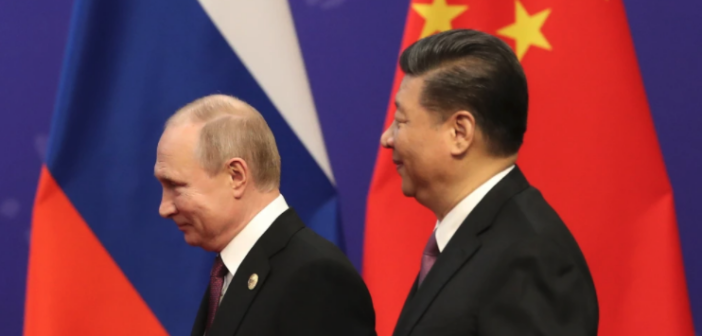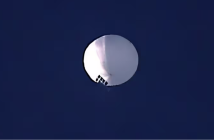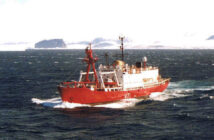Revised on Mar 22, 2022 at 09:37
When NATO leaders meet in Brussels on Thursday, it’s vital they craft a long-term strategy to punish Russia for its increasingly brutal campaign in Ukraine.
Ukrainian bravery backed by Western weapons, intelligence, cyber and electromagnetic assistance have killed thousands Russian troops, but Putin remains undeterred by sanctions and is targeting civilians whether they shelter, flee or surrender.
Putin knows he can’t hold Ukraine, but recognizes failure could drive him from power. He’s now on a punitive campaign to leave Ukraine a broken, neutral, demilitarized and unviable state that recognizes Crimea as Russian, and Donetsk and Luhansk as independent. He needs to be able to claim victory and is counting on savagery to force Ukraine to stop fighting.
Should there be a negotiated settlement, Putin expects sanctions to be eased, allowing him to rebuild his depleted army and get back to threatening NATO’s easternmost states to return the alliance to its 1997 borders.
That outcome can’t be allowed. Sanctions on Russia must be expanded to punish Putin and Russia for their illegal and unprovoked invasion. It will mean greater toughness and calling his nuclear and conventional bluffs as China watches closely and expands its own conventional and nuclear arsenal.
The problem is that just as the speed and scope of sanctions caught Putin by surprise, they sparked White House concern that a “cornered” Putin might precipitate World War III. To avoid provocation, a US missile test was postponed, the transfer of Polish MiG’s to Ukraine blocked, and curbs imposed on arms to Kyiv that Putin might not like.
Putin’s carefully choreographed intimidation campaign worked. The cool and calculating leader was replaced by the impulsive madman who put his nuclear forces on special alert, seized and cut off power to the wrecked Chernobyl reactor while holding its technicians hostage, shelled and set ablaze giant nuclear power plants to sow panic. As his bungling army was being shredded, officials speculated Putin might use chemical or nuclear weapons. On Saturday, Putin used hypersonic missiles to strike a Ukrainian arms bunker, prompting worldwide terror at the maiden wartime use of such weapons.
The Biden administration deserves credit for marshaling democracies to help Ukraine with vital military assistance and imposing unprecedented sanctions that will prove devastating to Russia. It has wisely disclosed intelligence to undermine Russia’s narrative and decision making.
But self-deterrence is self-defeating and plays into Putin’s twisted thinking. While caution is in order against a nuclear-armed state, extreme risk aversion is a liability. After his army’s dismal showing, he’s not stupid enough to move against NATO or launch a nuclear exchange he’ll lose, so crossing imagined red lines is immaterial when supporting a sovereign state with a democratically elected government. The world is at war with Putin and he knows how the proxy game is played. He started this mess with an unprovoked attack on his peaceful neighbor and shouldn’t be surprised the nations he’s antagonized are now fighting him.
Putin regards deference not as strength, but weakness to be exploited. The more his adversaries defer, the more he escalates, using uncertainty to unsteady his adversaries. Washington, in contrast, is all to predictable — pressure sparks panic that begets compromise.
It is not toughness that is escalatory, but weakness and nuance masquerading as toughness.
For all the administration’s talk of seeking to avoid World War III, it may already have started and will look very different from the last one, just as the last one was different from the one before it. During the last world war, major powers fought directly until submission. This war may well be hot in some places places like Ukraine, Taiwan and elsewhere, but largely center on competition and confrontation across economic, diplomatic, technological, cyber, space and informational lines.
As we go into this period, it’s worth bearing in mind a critical lesson — only hard capability deters men like Putin. Not sanctions nor shoes in offices, air policing or surveillance, but hard, demonstrable, credible capabilities and a willingness to use them.
And an ounce of prevention is worth a pound of cure. Had Western governments deployed troops to Ukraine at Zelensky’s invitation enforce the 1994 Budapest Memorandum and reinforced forces on NATO’s borders, Putin would have been forced to reconsider his invasion. Stopping him from acting would have been better and ultimately cheaper than allowing him to invade, then dealing with the consequences.
Having failed to deter the invasion, the world must do more to help Ukraine, do it fast and quietly as not everything needs to be public.
First, America must boost air and missile defenses on the NATO’s eastern flank so members can immediately ship their S-300 air and missile defense systems to Kyiv.
Ukraine has used Bayraktar drones — Turkey’s license produced version of General Atomic’s founding product, the Gnat — to great effect. They need more of them. Washington must immediately export far more capable Reaper and Grey Eagle aircraft to Ukraine. Many of these US Air Force and Army aircraft are sitting unused and can be operated from laptops.
More anti-armor and anti air-weapons are needed including loitering munitions. Biden’s $800 million package included Javelin and Stinger missiles, but only 100 Switchblades as DoD’s own stocks are low. Let’s implement the Defense Production Act to get more weapons into Ukrainian hands. All allies and partners with similar capabilities must do the same.
And if Ukraine says it needs MiGs, it should get them, even if they are shipped across the border for spare parts. No nation under fire ever said they need fewer combat aircraft.
NATO — and the United States in particular — deserves credit for its unprecedented intelligence, targeting, electromagnetic and cyber assistance, but Ukraine needs more help.
Second, Russia’s entire ruling elite must be sanctioned and some should be indicted, including Duma members, diplomatic, military and media figures engaged in making war on Ukraine, committing atrocities there or lying about Moscow’s actions. And their families.
They must lose their Western assets, be blocked from travel, and kept from foreign universities. All living aboard must be forced to return to Russia.
Third, Washington must stop telling the world it means no harm to Putin and Xi’s regimes given both have acted to undermine American democracy. Both are convinced America is trying to topple them and Putin has said Washington’s sanctions are tantamount to a declaration of war aimed at collapsing his regime.
It’s time to drop the pretense. Just as Putin meddled in American politics, Washington can help push him and his cronies from power.
And Putin is vulnerable. He thinks he can crush dissent until sanctions are loosened, and his increasing brutality tactics suggest increasing vulnerability. He can crack down, but can’t arrest everyone. As economic pain permeates the nation — including to the lower classes who support Putin — protests will grow and estimates suggest things get economically unbearable by early June.
While Russians are increasingly cut off from global news, they are not stupid. They know they are increasingly living in a dictatorship. They will keep their heads down until they decide to rise up.
The West must break the internet Iron Curtain Putin has erected to keep his people in the dark about his crimes. The BBC resumed shortwave broadcasting that once kept Soviet citizens informed about its tyrannical regime. Unlike the internet, shortwave can’t be blocked.
Elon Musk might be able to help. He deserves credit for making Starlink available to Ukraine, and after Russia jammed its signals, SpaceX updated the software on its spacecraft. That capability must be made available across Russia.
Hacktivists can help by doing their part.
So can the wealth Western powers reclaim from Putin and the oligarchs, given as much as $20 trillion was stolen from the Russian people since the end of the Cold War.
Those funds can help rebuild Ukraine and its military, compensate families for lost lives and property, reimburse the cost of weapons to fight Russia and caring for millions of Ukrainian refugees.
Then, a vast sum — say, $10 billion — should be awarded for anyone or group that captures Putin and other top leaders alive and delivers them to The Hague for prosecution of their crimes in Russia, Chechnya, Georgia, Ukraine and Syria, innumerable assassinations of opponents, and repression of the Russian people. It must be made clear that Putin and his pals will pay for their long litany of criminality.
The remainder should be reserved for the Russian people if they overthrow their tyrants, helping them reset a great nation.
A democratic Russia would be good Russians and break the authoritarian alliance between Moscow and Beijing, depriving China of an important partner in confronting the West.
The question is whether Putin can crush Ukraine by then, the West will start lifting sanctions in the wake of either his victory or a diplomatic solution, or China comes to his aid. Perhaps all three.
Finally, Biden made clear to Xi the stakes if Beijing helps Moscow. The Chinese leader is expected to back Putin, forcing Washington and its allies to follow through. Doing so will be costly, but necessary.
Like Putin, Xi is vulnerable to Western pressure. China’s growth has slowed, civil servants suffered a one-third pay cut and experts worry more real estate problems. The great global decoupling that began under Donald Trump and worsened by covid is accelerating as governments try bring manufacturing back home,
Xi should distance himself from Putin, but believes America is a declining power, convinced if he and Putin push hard enough, China and Russia can exert influence over their regional spheres. As eager as the West is to see Putin’s loss in Ukraine, Xi is equally eager to see Putin succeed as a signal to the West.
Aside from punishing Russia and China, Washington must ensure Xi doesn’t miscalculate over Taiwan as Putin did over Ukraine.
America and its partners must build troop presence on the island in utter secrecy until sufficient force is on the island. That and furnishing both Taiwan as well as US Indo-Pacific forces with more weaponry is the only way to deter conflict.
It’s either that or run the risk of a Chinese invasion and a bloody, devastating and costly battle to retake the island.
After decades of muddled thinking and illusions about the demise of war and the better nature of angels, it’s time for clarity. Deterrence is expensive, but it’s cheaper than fighting a war.
The most consequential battle for democracy and the future of the rules-based order, the outgrowth of Pax Americana by American and allied blood and treasure in World War II, a period of peace and prosperity that allowed China to become the nation it is now, is in Ukraine. If Putin is beaten there, toppled and brought to account for his crimes, it will signal that other autocrats are on notice.
But if Putin again manages to wriggle out of the noose to stand on the Ukrainian side of the Polish border as the victor, smirking at the alliance as sanctions are lifted, then the world will be entering into a truly darker and more dangerous era.




